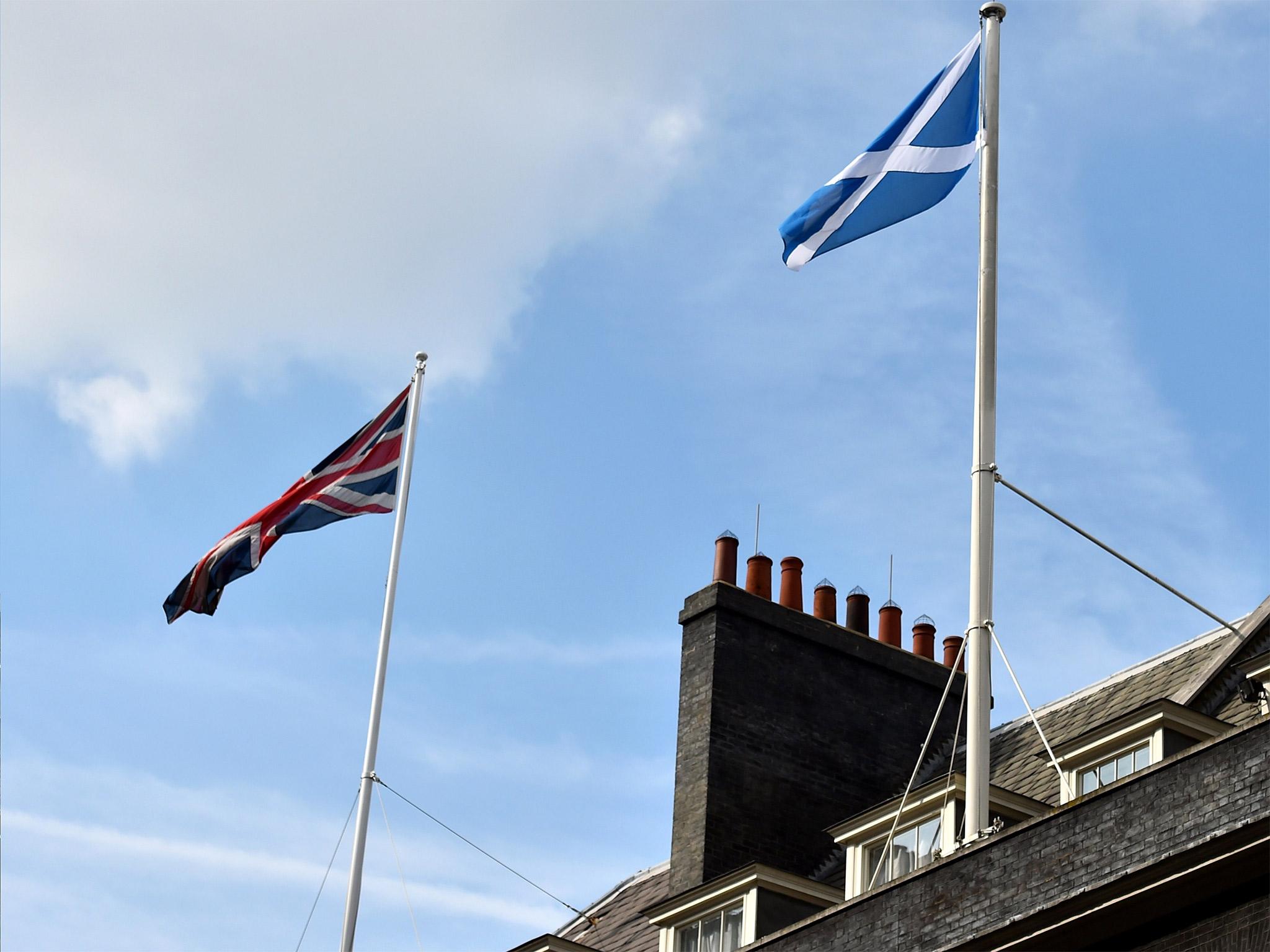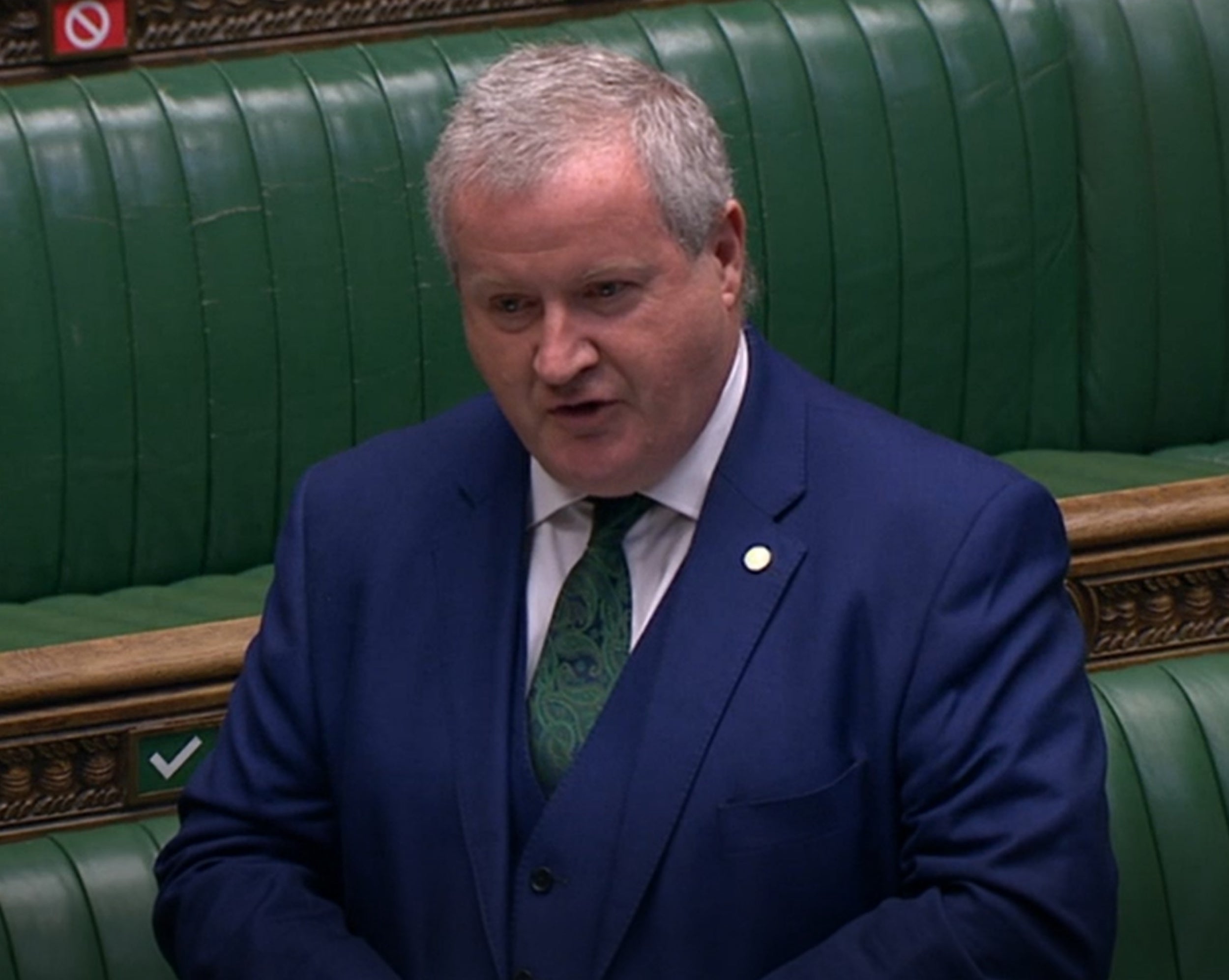Westminster on collision course with Edinburgh and Cardiff over plans for repatriation of powers after Brexit
Proposals denounced as 'power grab' by Scottish National Party

Boris Johnson’s government is on collision course with Edinburgh and Cardiff after releasing proposals for a post-Brexit settlement which have been denounced by the Scottish National Party as a Westminster power grab.
The plans contained in a government white paper include the creation of an independent body to “monitor and analyse” regulations passed in the four nations of the UK to ensure that they do not diverge in a way which would create barriers to trade.
The SNP’s leader in Westminster warned on Wednesday that the creation of an “unelected, unaccountable” organisation to pass judgment on the decisions of the Scottish parliament would not be accepted.
Under plans published for consultation by business secretary Alok Sharma, some 111 powers returned from the EU after the end of the Brexit transition period in December will be devolved to Scotland, 70 to Wales and 157 to Northern Ireland, in areas ranging from public procurement to water quality to agricultural support.
But new measures will be put in place to ensure that businesses across the country are able to trade unhindered in all four nations of the UK.
Ministers warned that without action to protect the UK’s internal market, businesses risked “a complex and increasingly fragmented regulatory environment” after departure from the EU.
Proposals contained in the white paper would enshrine the principles of mutual recognition of regulations between the four nations and a “level playing field” for companies across the UK, they said.
Whitehall sources insisted that the changes would not get in the way of devolved governments taking independent action in their areas of competence, as seen when Scotland introduced minimum pricing of alcohol and Wales moved ahead of the rest of the UK to impose a charge on disposable plastic bags.
But Ian Blackford told the House of Commons that the plan was part of a “full-scale assault on devolution” by the Westminster government.
“Tomorrow, this Tory government will publish legislation for its biggest power grab since the Scottish people voted overwhelmingly for the Scottish parliament in 1997,” he told MPs.
“Westminster’s plan to impose an unelected, unaccountable body to rule on decisions made by the Scottish parliament will not be accepted.
“The decisions of the Scottish parliament must and will be decided by the Scottish people.”
Mr Johnson insisted that the plans amounted to “possibly the biggest single act of devolution to Scotland, to Wales, to Northern Ireland, in modern memory”.
And he accused the SNP of wanting to “hand the powers that we would give back to Scotland from this parliament to Brussels”.
Mr Blackford retorted that it was “a pity” that a prime minister who extolled the benefits of the UK single market “doesn’t understand the economic value of the European single market”.
Devolved parliaments will have no veto on the proposals set out in Mr Sharma’s white paper.
But a Welsh government spokesperson said that any attempt to impose them unilaterally from Westminster would be “deeply damaging”.

“We support having rules across the UK to regulate the internal market, but these rules must be agreed between the four governments in the UK, each of which has their own responsibility for economic development,” they said. “Any new system must have independent oversight and dispute resolution.
“Unfortunately, the UK government has not managed to share the paper with us and Welsh ministers have had no recent discussions with the UK government on these issues. Any attempt to unilaterally impose a system will be deeply damaging.”
Scotland’s sales to the rest of the UK total about £52bn a year, accounting for more than 60 per cent of all exports, while around about 50 per cent of Northern Ireland’s sales are to Great Britain and 75 per cent of exports of Welsh goods are consumed in other parts of the UK.
Mr Sharma warned that without legislation to ensure mutual recognition of regulations and non-discrimination between companies based in the four nations, Welsh lamb producers could end up unable to sell their lamb in Scotland or Scotch whisky producers could lose access to supply from English barley farmers.
“The UK’s internal market has functioned seamlessly for centuries,” said the business secretary. “When we exit the transition period at the end of the year, we want to ensure the most successful political and economic union of nations in the world continues to grow and thrive.
“This plan protects jobs and livelihoods. Without these necessary reforms, the way we trade goods and services between the home nations could be seriously impacted, harming the way we do business within our own borders.”
Cabinet Office minister Michael Gove described the plans as a “power surge” to the devolved administrations, and promised to work over the coming weeks with Cardiff, Belfast and Edinburgh on “a new structure for how we can co-operate better and share ideas”.
“We should be learning from one another, combining the expertise of each nation to share ideas, innovation and, where appropriate, put in place processes for voluntary co-operation,” said Mr Gove.
CBI director-general Carolyn Fairbairn said: “Preserving the integrity the internal single market – the economic glue binding our four nations – is essential to guard against any additional costs or barriers to doing business between different parts of the UK.
“Increasing prosperity, creating opportunities for all and raising living standards will be the hallmarks of success. Delivery will be the real test, requiring closer collaboration between business, Westminster and devolved administrations.”
Join our commenting forum
Join thought-provoking conversations, follow other Independent readers and see their replies
Comments
Bookmark popover
Removed from bookmarks